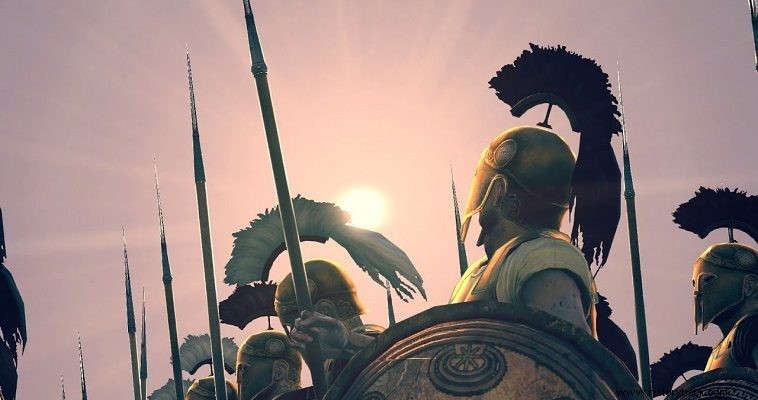
The defeat at Salamis dismayed Xerxes. Mardonius, the mastermind behind the Persian invasion of Greece begged Xerxes to withdraw. He himself would remain with 300,000 elite soldiers behind and conquer Greece the following summer.
Xerxes was soon convinced and left, with the army suffering terrible losses from hunger and the attacks of the Greeks.
The winter of 480 – 479 BC he passed with the two opponents keeping an eye on each other. Mardonius camped in Boeotia. In the meantime, the Greeks were also mobilizing their forces for the upcoming catalytic conflict.
In total, 110,000 men were gathered, of which 38,700 were hoplites and the rest were lightly armed infantry. The Greek army took up positions at the foot of Kithairon, having secured its supply of food and water. For this reason the Greeks were in no hurry to fight.
But the Persians no longer had the luxury of time. Mardonios began to face a serious supply problem. So all he could do now was fight and either win or die. He therefore decided to lure the Greeks to the plain of Plataea, in a territory of his choice, suitable for the action of his cavalry.
Fanatic attack
For this purpose he organized a difficult operation, at the head of which he placed his cavalry commander, Masistio . The Persian cavalry was ordered to make a raid against the Greeks, relying on surprise.
So at first light, the elite Persian troops moved swiftly against the Greek lines. Immediately, the Greeks took up arms and prepared to repel the opponents. Each section tried to cover their backs and flanks, advancing their front and the forest of spears it presented.
When the Persians approached they saw the Greek phalanxes aligned they did not dare to advance on the forests of spears. Masistius ordered his isles to line up in depth and one by one to approach the Greek divisions within a javelin or arrow throw distance and to engage them with whatever weapon they had.
He believed that in this way he would cause enough losses to the phalanxes, so that they would disorganize and "break" the formations, charging against his horsemen to relieve them from the "barrage". Then, they could advance against the Greeks and crush them.
Fanatic resistance
Everything now depended on the resistance of the Greeks to the missiles and losses, that is, on the level of education, determination and composure of the Greeks. The tactics of the Persians did not work , since, despite the losses, the Greeks did not break their formation, nor did they attempt to pursue them. But there was also a Greek body that had not had time to take positions.
It was the body of the Magarean hoplites, which occupied an exposed position, having both their flanks exposed. Masistius immediately ordered his men to advance against the exposed flanks of the Megarians. The advance was made and the Megarians suffered great losses, but were not dispersed. With unimaginable composure they formed a kind of square and, covered by their shields, they received the Persian barrage of spears and arrows untouchable.
But the situation was critical and if they were not reinforced, everyone would surely be killed. But then the Megarians were reinforced by 300 Athenian hoplites and most importantly, by the small archers of the Athenians, perhaps the only body of archers in the Greek army. The archers moved quickly and before the Persians could react they were within the square of the hoplites. Covered by the hoplites, they began to cut down the Persian horsemen with their arrows.
Masistios fought, brave and proud, on the front lines , personally leading his men. But an arrow stuck in the chest of the Persian general's horse. Horse and rider collapsed to the ground. Immediately a hoplite jumped from the yoke and stuck his spear in the face of the still dazed Masistius.
The Persian horsemen when they saw their leader lifeless on the ground launched a furious, but completely uncoordinated charge against the Greek square. But they didn't achieve anything. On the contrary, they suffered serious losses from the masked archers and withdrew.
And when Pausanias headed against them, another division broke his lines and fled. The first conflict, decisive for the morale of each army, ended with a complete victory for the Greeks.
